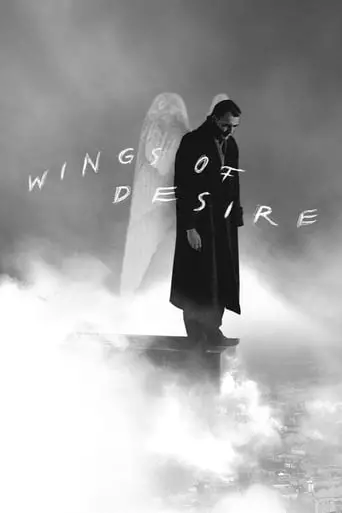
Der Himmel über Berlin (1987) Watch Online Free
Two angels, Damiel and Cassiel, glide through the streets of Berlin, observing the bustling population, providing invisible rays of hope to the distressed but never interacting with them. When Damiel falls in love with lonely trapeze artist Marion, the angel longs to experience life in the physical world, and finds — with some words of wisdom from actor Peter Falk — that it might be possible for him to take human form.
Wings of Desire is a poignant and visually captivating film directed by Wim Wenders, set in a divided, gray Berlin just before the fall of the Wall. The story follows two angels, Damiel (Bruno Ganz) and Cassiel (Otto Sander), who silently observe the lives of the city’s inhabitants. These angels provide comfort and guidance, offering their presence to people in distress, but they themselves are unable to experience human emotions or touch.
Damiel becomes particularly intrigued by Marion (Solveig Dommartin), a lonely trapeze artist in a circus. He is captivated by her sorrow and grace. Over time, his desire to experience human life intensifies, and he longs to give up his immortal existence to feel love and physical sensations. Inspired by Marion, Damiel’s longing grows into a decision: he will become human, forsaking his angelic nature. The transition culminates in the transformation of the mundane world into a vibrant, colorful experience, symbolizing his entry into human life.
The film intertwines personal yearning with philosophical and political undertones. One of its most prominent themes is the contrast between the divine and the human, encapsulated by the angels’ perspective of a world they can observe but never fully participate in. This duality is visually expressed through the film’s use of black and white for the angels’ world and color for human experiences. The film explores existential themes of desire, loneliness, and the search for meaning in life, while also reflecting on the reunification of Germany, symbolized by the angels’ transition from the cold, impersonal surveillance of Berlin to a more intimate, human-centered existence.
The philosophical undercurrent of Wings of Desire touches on the tension between intellectual detachment (the Apollonian) and emotional, passionate involvement (the Dionysian), inspired by Nietzsche’s writings. Damiel’s choice to become human is an embrace of life’s impermanence and emotional depth, a journey into both beauty and suffering. The movie also explores the transformative power of love and the deep connections that exist in human existence, often hidden from view.
Wings of Desire offers a profound emotional experience. After watching, you may feel a sense of melancholy mixed with wonder, as the film prompts reflection on the beauty and fleeting nature of life. The transition from the gray, impersonal world of the angels to the vibrant human world will likely leave you with a renewed appreciation for life’s simple, sensual moments. The film’s slow pacing and contemplative nature may also evoke a sense of quiet introspection, making it a film that lingers in the mind long after the credits roll.
The exploration of love, longing, and human connection will resonate deeply, leaving you thinking about your own experiences and desires. While the film’s themes can feel heavy and existential, it also holds a sense of hope and the possibility of transformation, leaving viewers with a quiet optimism about the power of change and human experience
